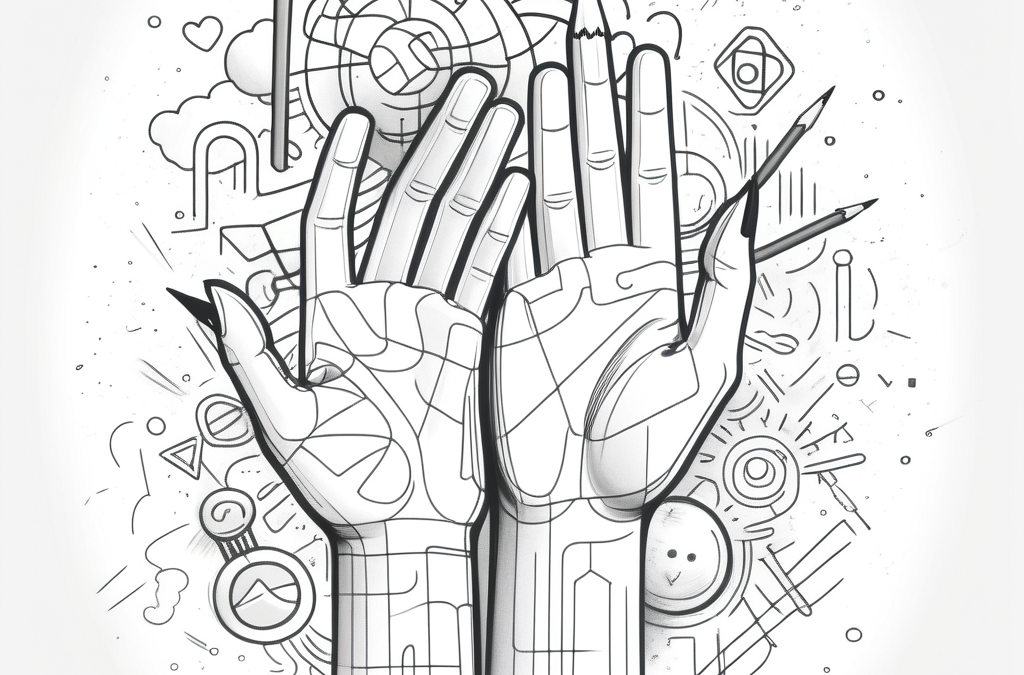Introduction: The Importance of AI Ethics in Our Lives
Imagine a world where AI systems are as trustworthy as human friends. Sounds like a utopian dream, right? But with the rapid advancement of artificial intelligence, it’s becoming increasingly crucial to ensure that these machines are not only intelligent but also ethical. As AI technologies become embedded in our daily lives, addressing their ethical implications is essential for building a fair and just society.
This article explores the recommendations on the ethics of artificial intelligence and why these principles matter for the future of technology.
Unpacking AI Ethics: What Are They and Why Do They Matter?
AI ethics consist of guidelines and principles that ensure AI is used in a fair, safe, and beneficial manner. Think of it as teaching a robot to be a good citizen in our digital world. Here’s why AI ethics should matter to you:
- Fairness: Ensuring AI treats everyone equally, regardless of race, gender, or background.
- Transparency: Making AI decisions understandable, so users can see the reasoning behind them.
- Privacy: Protecting personal information and maintaining user confidentiality.
- Safety: Ensuring AI systems do not cause harm to people or the environment.
- Accountability: Establishing clear responsibility when AI systems make mistakes.
By adhering to these principles, we can prevent issues like biased algorithms and unfair treatment, fostering trust and confidence in AI applications.
The Importance of Ethics in AI Development
Building trust is at the heart of ethics in AI development. When users feel secure using AI, they are more likely to embrace its capabilities. Ethical oversights in AI have led to significant real-world consequences, such as:
- Facial recognition systems failing to accurately identify individuals with darker skin tones.
- Recruitment tools exhibiting bias against women, highlighting the critical need for ethical practices from the beginning of AI development.
By prioritizing ethics, we can create systems that not only avoid mistakes but also actively contribute to positive outcomes.
Ethical Guidelines for Artificial Intelligence: Best Practices
Let’s explore some best practices that are shaping responsible AI development:
- Transparency: Create explainable AI systems that can clarify their decision-making processes. This builds user trust.
- Fairness: Use diverse datasets and conduct regular bias checks to ensure AI doesn’t favor certain groups over others.
- Accountability: Establish a digital paper trail to track AI decisions, making it easier to identify responsible parties.
- Privacy: Implement strong data protection measures and be clear about how personal information is used.
These guidelines are essential for creating AI that enhances lives rather than complicating them.
How to Implement AI Ethics: Practical Steps
Implementing AI ethics involves taking proactive measures. Here are some practical steps to ensure your AI projects are ethical and effective:
- Develop Clear Ethical Guidelines: Craft a rulebook that outlines your team’s core values, focusing on fairness, transparency, and privacy.
- Engage Stakeholders: Reach out to those impacted by your AI project to gain insights and feedback, helping you identify potential blind spots.
- Commit to Continuous Education: Stay informed about the latest developments in AI ethics by following experts, reading tech blogs, and participating in discussions.
Regularly revisiting these steps ensures that you are actively contributing to responsible AI development.
Ethical Considerations for AI: A Deep Dive
As we delve deeper into AI ethics, several important aspects shape the technology’s future:
- Inclusivity: Ensure diverse voices contribute to AI development, creating solutions relevant to a broader audience.
- Sustainability: Consider the environmental impact of AI systems and prioritize energy-efficient algorithms.
- Security: Protect AI systems from misuse, ensuring they benefit society without causing harm.
These considerations help create AI that is not just advanced but also responsible and aligned with our values.
Recommendations for Responsible AI Use
Here are key recommendations for using AI responsibly:
- Establish Ethical Review Boards: Create a team of experts to monitor your AI projects, ensuring adherence to ethical guidelines.
- Conduct Regular Audits: Implement routine evaluations to ensure AI systems function as intended and align with ethical standards.
- Encourage Feedback: Solicit user insights to refine your AI projects, making them more effective and user-friendly.
By following these recommendations, you can develop intelligent systems that are also kind, fair, and impactful.
The Future of AI Ethics: Trends and Predictions
The future of AI ethics is filled with exciting possibilities. As emerging technologies reshape the landscape, it’s vital to develop ethical frameworks that ensure responsible use. Here’s what to watch for:
- Evolving Regulations: Governments are drafting rules to keep AI in check, necessitating adaptability in the tech field.
- Emerging Skill Sets: Future tech professionals will need to understand not just coding, but also ethics, privacy concerns, and societal impacts.
Stay informed and adaptable as you prepare for the exciting future of AI ethics.
Conclusion: A Call to Action
AI ethics are vital in shaping a technology-driven world that values trust and fairness. As future tech enthusiasts, you play a crucial role in this ethical revolution.
Engage with AI ethics by asking tough questions about fairness and transparency in your projects. Stay curious, and foster discussions about the ethical implications of AI with peers and mentors.
Your innovative ideas can help create AI that enhances lives and promotes a fair future. The responsibility lies with each of you—will you step up and be part of this incredible journey toward a more ethical AI-driven world?


